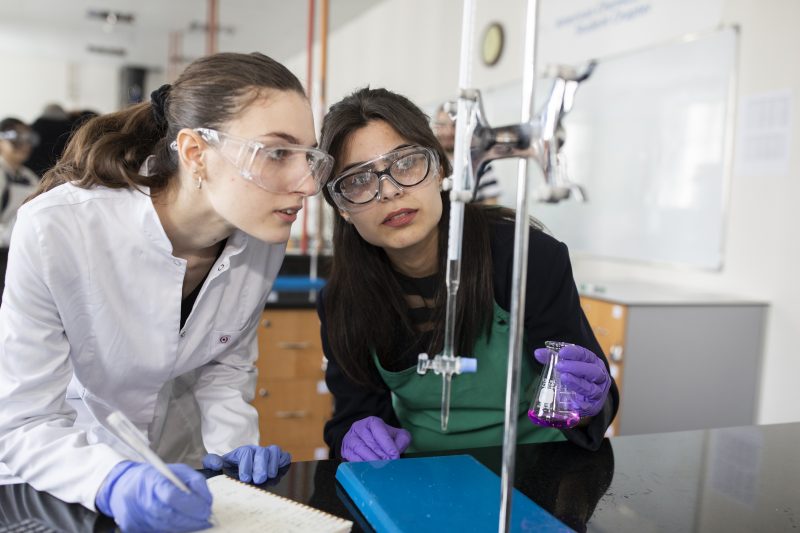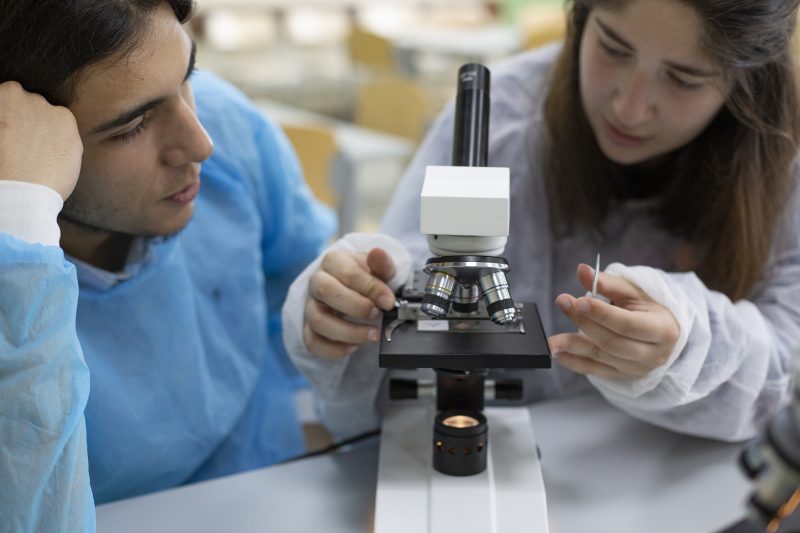
Jake Lyell for MCC
MCC’s Georgia II Compact provided students and educators with essential skills and training that will help build the country’s workforce and boost long-term economic growth and prosperity.
It has been one year since the successful completion of MCC’s Georgia II Compact. The $140 million investment focused on building quality human capital and equipping the next generation of Georgians with in-demand skills, knowledge, and training, through projects aimed at better education, reduced gender disparities, and building strong partnerships. It’s exciting to look back to assess the compact’s sustainability and explore what has been achieved since its closeout a year ago.
Achievements Since Close of Compact
The Millennium Foundation—the Government of Georgia’s successor entity to MCA-Georgia, the compact’s implementing authority is building on the results achieved over the course of the five-year partnership.For example, the Millennium Foundation is sustaining a key partnership from the compact between San Diego State University (SDSU) and the three major Georgian public universities. SDSU-Georgia provides enables Georgian students to pursue U.S. accredited bachelor’s degrees in STEM disciplines subjects such as chemistry and computer engineering without leaving their home country. The Millennium Foundation has been instrumental in supporting the efforts of these Georgian public universities to achieve U.S. accreditation. Over the coming years, SDSU’s Georgian partner universities will assume full responsibility for degree delivery, after years of working closely with SDSU to adapt the SDSU curricula to the Georgia context. The continued leadership of the Government of Georgia, through the Millennium Foundation, has enabled this transition to proceed smoothly. This will allow the local universities to continue to produce a pipeline of world-class engineers and scientists and grow the Georgian economy for many years to come.
The Government of Georgia has also been building on the compact’s efforts to transform Georgia’s technical and vocational (TVET) system into one that produces a highly-qualified workforce that is in high demand. Since the compact closed, former compact grantee Railway Transport College added two new accredited degree programs to its roster of TVET offerings. Moreover, the Government is working on policy reforms that will sustain the public-private partnership model that the compact developed, ensuring the continued improvement of TVET in Georgia.
The Millennium Foundation is also working on ways to increase the impact of the compact’s Improving General Education Quality Project. The project improved the quality of education by targeting sectors that needed the most support: the physical learning environment, secondary school teacher subject knowledge and teaching skills, school management capacity, and education assessments, with an emphasis on STEM subjects. To build on this, the Government plans to scale up a school operations and maintenance framework. It also announced that it will prioritize improved learning outcomes for students in rural areas, including socially vulnerable students.
One unexpected but fortuitous impact of the compact’s investment in education has been the production of several online materials and platforms for teacher training. These have proven very useful to Georgian educators and students as classrooms shifted to a virtual reality in the face of the global pandemic.

Jake Lyell for MCC
MCC’s investment in Georgia helped to rehabilitate 91 schools across the country, which included upgrading utilities like electricity and water and providing modern laboratories and equipment.
Strong Partnership in Action
The Government of Georgia was a strong partner throughout the development and implementation of the compact, ensuring not only that program objectives were met but also making commitments to build on these objectives for years to come. The Government exceeded its required country financial contribution, contributing approximately $33 million towards compact investments and an additional $10.5 million to continue supporting the STEM Higher Education Project after the compact’s end.Moreover, the Government of Georgia’s new education sector strategy envisions scaling up the projects of the compact. By 2022, it aims to direct six percent of the country’s GDP into education, which will constitute 25 percent of the state budget.
This strong government commitment to continuing and even replicating the compact’s student-centered investments—from the start of a child’s schooling to his or her placement in the job market—will help to ensure sustainability and long-term impact.
Capacity Building and Country Commitment
The success of the Georgia II Compact is a testament to the critical combination of capacity building and partner country commitment to sustaining a compact’s results.MCC’s investments in Georgia placed an emphasis on country ownership and skills building, so that the compact’s achievements could feed into Georgia’s long-term prosperity. And the Government of Georgia’s commitment to sustaining the compact results are clear from its continued funding of the Millennium Foundation as a successor entity specifically tasked with compact sustainability.

